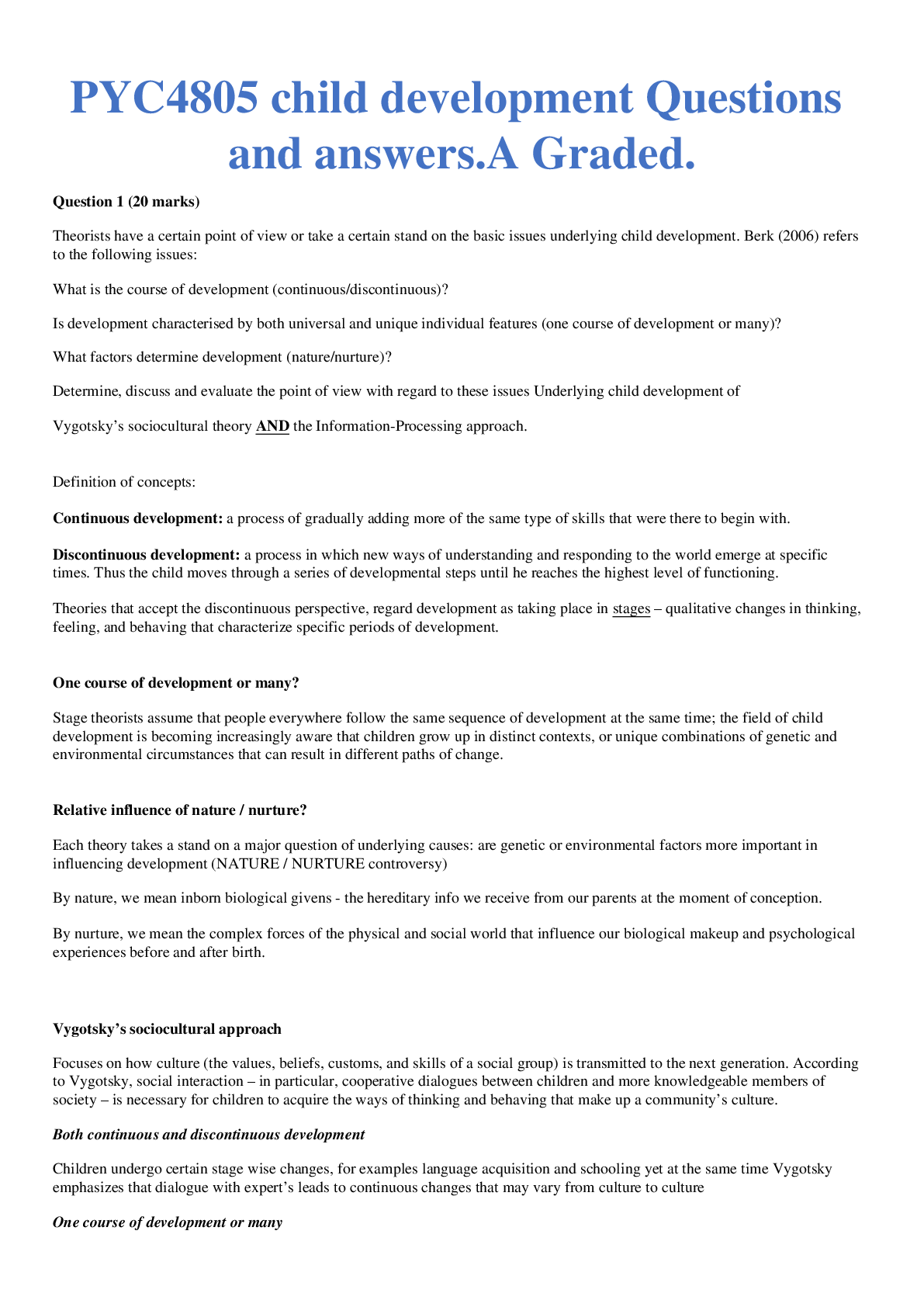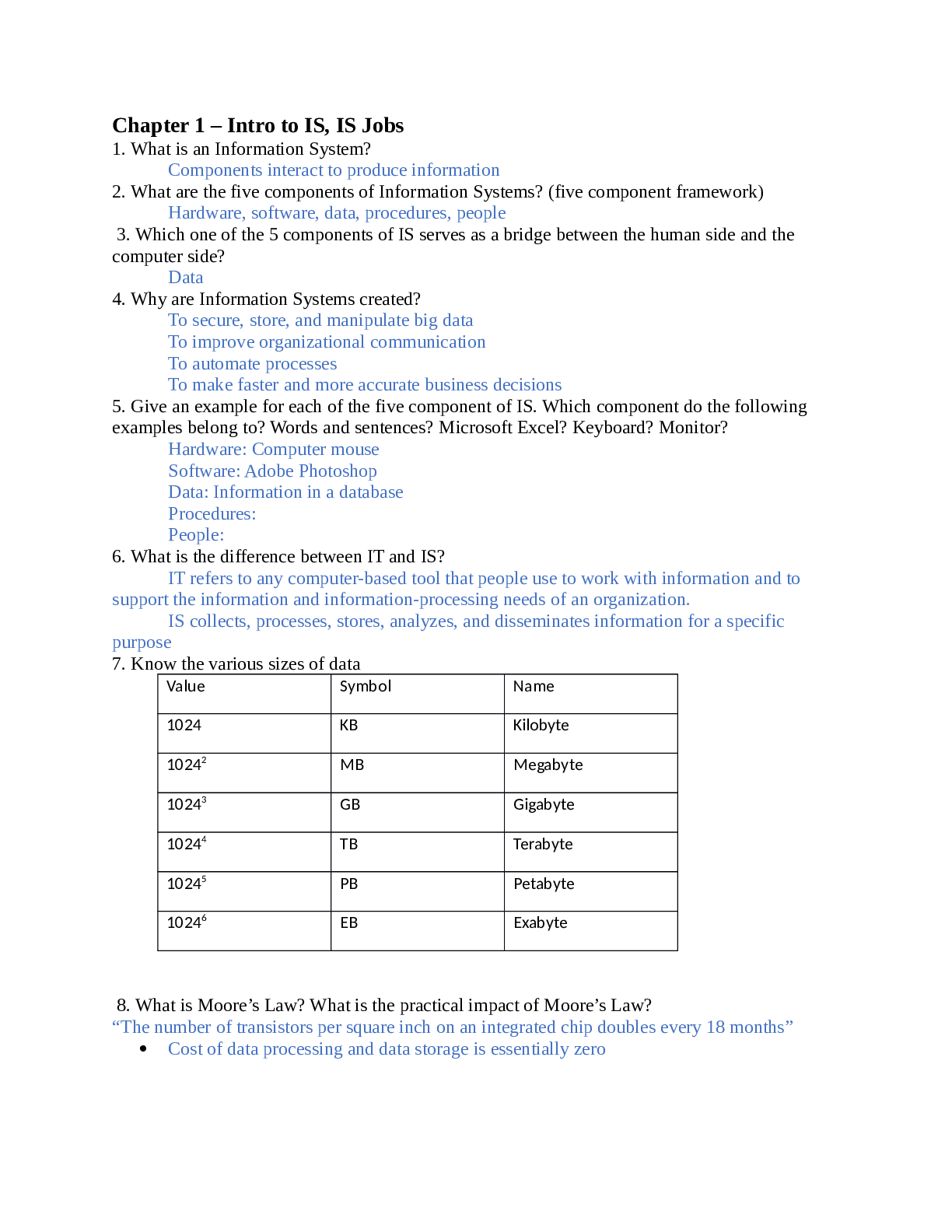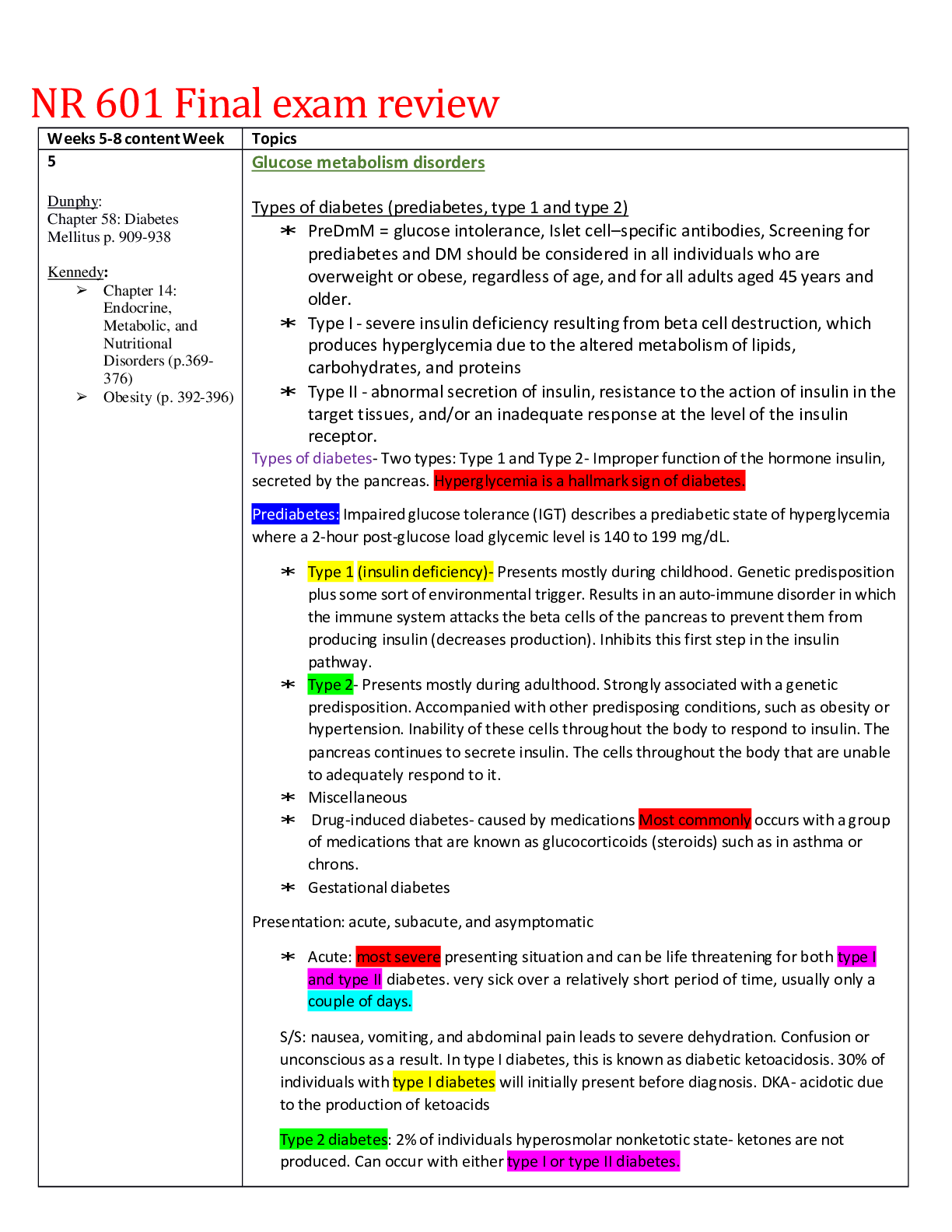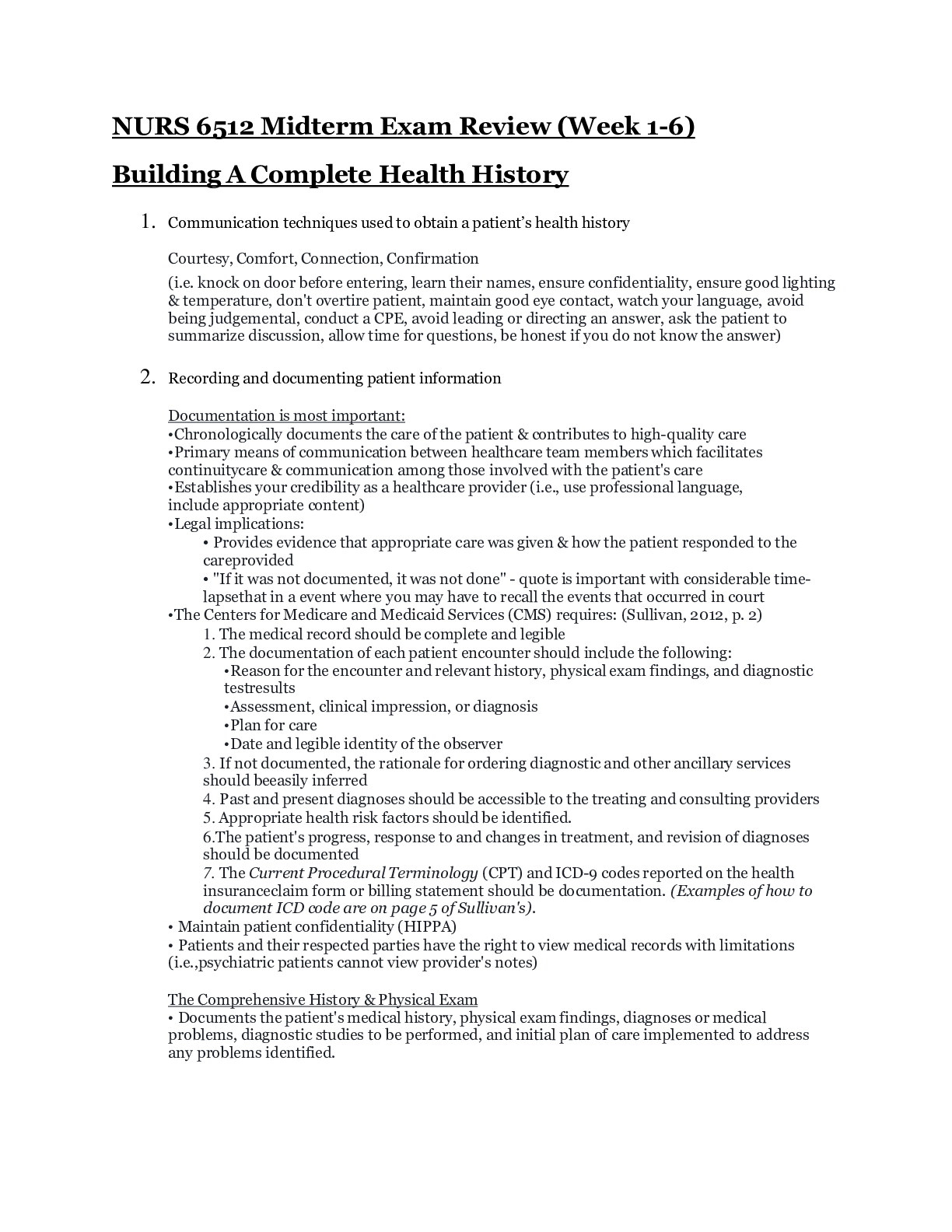*NURSING > EXAM REVIEW > PYC4805 child development Notes | Questions and answers.A Graded. (All)
PYC4805 child development Notes | Questions and answers.A Graded.
Document Content and Description Below
Question 1 (20 marks) Theorists have a certain point of view or take a certain stand on the basic issues underlying child development. Berk (2006) refers to the following issues: • What is the cou... rse of development (continuous/discontinuous)? • Is development characterised by both universal and unique individual features (one course of development or many)? • What factors determine development (nature/nurture)? Determine, discuss and evaluate the point of view with regard to these issues Underlying child development of Vygotsky’s sociocultural theory AND the Information-Processing approach. Definition of concepts: Continuous development: a process of gradually adding more of the same type of skills that were there to begin with. Discontinuous development: a process in which new ways of understanding and responding to the world emerge at specific times. Thus the child moves through a series of developmental steps until he reaches the highest level of functioning. Theories that accept the discontinuous perspective, regard development as taking place in stages – qualitative changes in thinking, feeling, and behaving that characterize specific periods of development. One course of development or many? Stage theorists assume that people everywhere follow the same sequence of development at the same time; the field of child development is becoming increasingly aware that children grow up in distinct contexts, or unique combinations of genetic and environmental circumstances that can result in different paths of change. Relative influence of nature / nurture? Each theory takes a stand on a major question of underlying causes: are genetic or environmental factors more important in influencing development (NATURE / NURTURE controversy) By nature, we mean inborn biological givens - the hereditary info we receive from our parents at the moment of conception. By nurture, we mean the complex forces of the physical and social world that influence our biological makeup and psychological experiences before and after birth. Vygotsky’s sociocultural approach Focuses on how culture (the values, beliefs, customs, and skills of a social group) is transmitted to the next generation. According to Vygotsky, social interaction – in particular, cooperative dialogues between children and more knowledgeable members of society – is necessary for children to acquire the ways of thinking and behaving that make up a community’s culture. Both continuous and discontinuous development Children undergo certain stage wise changes, for examples language acquisition and schooling yet at the same time Vygotsky emphasizes that dialogue with expert’s leads to continuous changes that may vary from culture to culture One course of development or many Vygotsky believes that there are many courses of development and that socially mediated changes in thought and behaviour vary from culture to culture, he did however place less emphasis on a child’s ability to shape their own development. [Show More]
Last updated: 2 years ago
Preview 1 out of 48 pages

Buy this document to get the full access instantly
Instant Download Access after purchase
Buy NowInstant download
We Accept:

Reviews( 0 )
$12.00
Can't find what you want? Try our AI powered Search
Document information
Connected school, study & course
About the document
Uploaded On
Nov 07, 2020
Number of pages
48
Written in
Additional information
This document has been written for:
Uploaded
Nov 07, 2020
Downloads
0
Views
185


.png)





.png)





